Zhaoming Cao
Peking University, China
Abstract Title: XGBoost-Enhanced Predictive Model for Cognitive Impairment in Diabetic Elderly: Integrating Dietary Index for Gut Microbiota with SHAP Interpretability
Biography:
Zhaoming Cao is a doctoral candidate at the School of Nursing, Peking University. Her research focuses on gut microbiota regulation of metabolic diseases and diabetes-related cognitive impairment. She has published three first-author SCI papers with a total impact factor of 12.7 in prestigious journals including Nutrients, International Journal of Molecular Sciences, and Brain Sciences. Cao has presented her research at international conferences, including serving as session chair at the 2025 International Conference on Polysaccharides for Nutraceuticals and Future Foods. She is the recipient of the First Prize in the Doctoral Category of the 8th "Weiming Academic Star" Award at Peking University School of Nursing.
Research Interest:
This cross-sectional investigation examined the integration of the dietary index for gut microbiota (DI-GM) with XGBoost-enhanced predictive modelling to forecast cognitive impairment amongst elderly patients with type 2 diabetes. Utilising NHANES 2011-2014 data comprising 2,691 participants aged ≥60 years with type 2 diabetes, researchers developed a sophisticated predictive model incorporating DI-GM alongside clinical and demographic variables. Shapley Additive exPlanations (SHAP) analysis was employed to enhance model interpretability and elucidate key predictive determinants. The integrated approach demonstrated exceptional discriminatory performance, achieving an area under the curve (AUC) of 0.87 (95% CI: 0.85-0.89), with 51.67% sensitivity and 66.24% specificity. Age emerged as the most influential predictor, followed by beneficial gut microbiota dietary patterns, whilst SHAP analysis revealed intricate non-linear interactions between dietary factors and demographic variables in cognitive impairment prediction. These findings suggest that integrating gut microbiota-modulating dietary patterns within XGBoost-enhanced predictive frameworks significantly augments predictive accuracy for cognitive impairment in diabetic elderly populations. This interpretable methodological approach offers valuable actionable insights for developing personalised dietary interventions that target the gut-brain axis, thereby advancing precision medicine strategies in diabetes management and cognitive health preservation amongst vulnerable elderly cohorts.
Keywords: XGBoost-Enhanced Predictive Model; Type 2 Diabetes;Cognitive Impairment; Dietary Index for Gut Microbiota(DI-GM); Shapley Additive exPlanations(SHAP).

